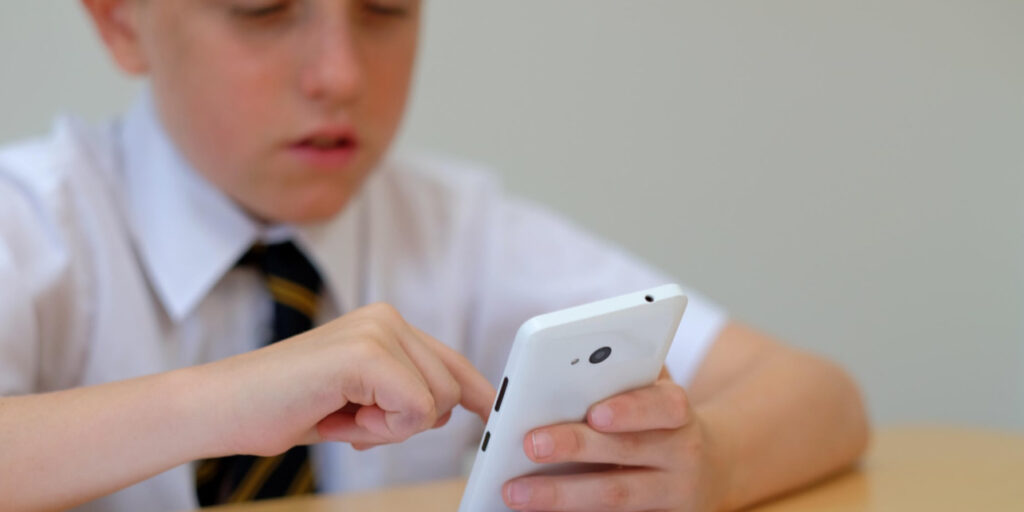More than 90% of schools in England have now banned mobile phone use among pupils, according to the first national survey of its kind.
The move has prompted calls for a statutory ban due to concerns over the damaging effects of smartphone use on young people.
The national survey, commissioned by Rachel de Souza, the Children’s Commissioner for England, revealed that headteachers have acted quickly to restrict mobile phone access during school hours.
Findings show that 99.8% of primary schools and 90% of secondary schools enforce some form of ban.
Daniel Kebede, General Secretary of the National Education Union (NEU), voiced support for a legal ban on mobile phones in schools.
He stated that such a move would ease pressure on school leaders, teachers, and parents. Kebede highlighted wider concerns around mobile phone use, online harm, and its negative impact on young people’s wellbeing.
He stressed the urgent need for a national conversation about mobile phone access, especially given young people’s exposure to harmful content online.
This shift in attitude marks a notable change among education leaders, who have traditionally preferred school autonomy over government regulation. At the NEU’s upcoming annual conference, members are set to debate motions pushing for stronger regulation of social media platforms to tackle harmful content, including threats and sexual violence.
Kebede suggested that a complete ban on social media use for under-16s should be considered. He compared major tech companies such as TikTok, Snapchat, and Instagram to tobacco firms, arguing that they should be subject to stricter regulation due to their role in the youth mental health crisis.
Education Secretary Bridget Phillipson echoed concerns about mobile phone use, stating that phones have no place in classrooms due to the disruption they cause.
She pointed to the survey results as evidence that the current policy of empowering headteachers to implement bans is working, contrasting it with what she described as the Conservative Party’s headline-chasing tactics. Phillipson pledged that Labour would continue to monitor schools and ensure every classroom remains phone-free.
Previously, the Conservatives had proposed an amendment to the government’s schools bill requiring all schools in England to ban mobile phones, but Keir Starmer rejected the proposal as unnecessary.
The survey revealed differences in how schools enforce their policies. Most primary schools either require pupils to hand in their phones or prohibit bringing them altogether. Among secondary schools, 79% allow pupils to keep their phones but ban their use or display, while 8% collect phones at the start of the school day.
Only 3% of secondary schools do not permit pupils to bring phones at all. A further 6% of secondary schools allow limited phone use during lessons with teacher approval.
In addition to mobile phone policies, the Children’s Commissioner surveyed children’s daily screen time across devices such as phones, tablets, computers, and consoles. Results showed that 23% of children aged eight to 15 spend more than four hours a day on screens, while 20% spend between three and four hours.
Rachel de Souza emphasised that children are not spending those hours on devices while at school. She warned that if society wishes to help children benefit from the internet, it must also regulate what children can access, where they access it, and act against the harm inflicted on their health, attention spans, and safety by technology companies.


